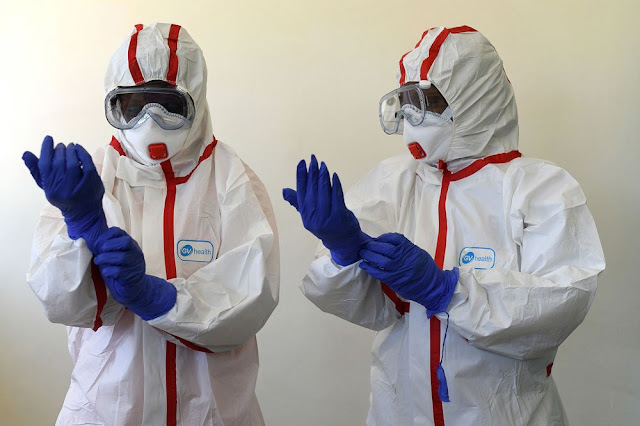Impact of the COVID-19 pandemic on the lifestyle, mental health and well being of adults and children in Kenya
Life has never been the same since March 11, 2020 when the World Health Organization (WHO) declared COVID-19 a global pandemic. This was the moment that countries resorted to lockdowns, cessation of movement, travel bans, closure of non-essential services and worship as well as complete halting of all social gatherings as measures meant to curb the spread of SARS-CoV-2, the coronavirus that causes COVID-19.
This economic and social disruption plunged so many people in Kenya into extreme
poverty, with many ending up undernourished for lack of food. The poor have bore the blunt of the health and economic
impacts of the virus.
Majority of enterprises faced an existential threat with many people
losing their livelihoods. In Kenya for instance, cessation of movements and the
complete shutdown of eateries, entertainment joints, ban on sporting
activities, social gatherings and places of worship crippled about 70 percent
of the country’s economic activities that directly or indirectly depended on
this sector.
Loss of
livelihoods
Many people lost their jobs and businesses collapsed due to either lack
of activity or whatever was available could not sustain them or cover their
overhead costs. This loss meant that they were now unable to feed themselves
and their families with effects being felt in almost every sector of the
economy.
However, it was not all doom for everyone. To some people, COVID-19
provided a great opportunity to earn a living. The internet provided the
biggest opportunities for earning as many people exploited online business
opportunities that presented themselves. The government restrictions brought
forth the digitization of so many services.
There were those who switched to selling stuff like the masks,
sanitisers and other safety equipment that were regarded as very essential in
the fight against COVID-19. Food deliveries and other errand services became
another key opportunity to earn.
All in all, the negative impacts of the COVID-19 pandemic clearly outweighed the positives.
Health
impacts
The health sector too was hard hit with some facilities being
overstretched by the high number of patients being admitted for COVID-19. The
cost implication too drained financial abilities of so many families as
COVID-19 treatment ended up being too expensive. Insurance companies declined to
foot bills accrued from COVID-19 treatment.
That notwithstanding, COVID-19 resulted to so many deaths, some wiping
out entire families or their breadwinners. These left behind orphans, widows
and widowers with no one to look up to.
Mental
health
The stigma associated to the pandemic was another very unfortunate
situation. Anyone believed to have contracted the disease was evaded and left
to live in isolation, sometimes being denied even the basic services.
Working from home was sometimes associated with more emotional exhaustion, especially in people who felt isolated from their colleagues and thus had less social support. Even though there were positive impacts to their relationships, including being able to spend more time with spouses, children or other family members who no longer had to spend their days at work or school, the rate of domestic violence, rapes and defilement skyrocketed during this period with so many school girls getting pregnant from peers and relatives.
To reduce the spread of the virus, the Government of Kenya
closed all schools and universities on March 16, 2020 for almost 9
months. This long school holiday break forced a good number
of learners to drop out of school and seek employment as casuals and house
helps. It was also a period that saw too much immorality among minors and too
much headaches for parents as they attempted to mend their children’s wayward
behaviours.
When the schools finally reopened, the government
created a crash programme with an attempt to cover up for the lost time. This has
created too much pressure to the learners and teachers. There is this school of
thought that believes that the pressure among these learners is the reason why
so many of them are resorting to torching their schools so as to offer them an
opportunity to be out of school.
Parents who also have to go an extra mile to pay school
fees after almost every one month. This has strained resources in many families
and causing mental torture, domestic disagreements and breakups in marriages.
In conclusion, the government needs to come up with
very stringent measures to cushion their people and revive businesses in the post-COVID-19
era. Economic recovery is central and
without a broad-based economic expansion, it will difficult to address other
challenges, such as education and healthcare.












.png)
No comments: